Posts Tagged ‘Hugo Awards’
New goodies!
Posted on: May 24, 2017
I am out of bookshelves, and there are now stacks of books next to the shelves, stacks that grow taller by the week and are threatening to fall over. I may have to start hiding books under the bed. There is a book cull in my future, that is for sure.
So of course I couldn’t help myself, and bought some more books!
At book club last week, instead of having the whole group read the same book, the club’s organizer put a stack of Hugo award winning authors on the table and told us each to pick something that looked interesting. I grabbed The Left Hand of Darkness by Ursula K. Leguin. I may have read this when I was a kid? But if I did I was too young to understand it.
Over the weekend, I went to one of Michigan’s largest used bookstores (not the largest, but it’s pretty big!!) with a friend, and although I wanted to buy everything, I came home with just a few items. And yes, I got lost in the bookstore.
from the non-fiction rooms
Maximum City is about Mumbai, and the Carl Sagan book is, I’m not 100% sure what it covers but it is sure to be enlightening. I hope that while I read it I hear Sagan’s comforting voice.
And now for the scifi!
Connie Willis is one of those authors I keep meaning to read more from, as I recommend her Doomsday Book novel to anyone who will listen. I’ve been meaning to read Blackout forever. As for Venus on the Halfshell, I’ve been a Vonnegut since high school. If the book is as entertaining as the opening biographical sketch of Trout, you’ll be hearing me laughing from miles away. For those of you not familiar with Kilgore Trout, I’ll just leave this here.
Happy Reading!
The Hugo Voter’s Packet was released a little over a week ago. For 24 hours, voters across the globe downloaded, unzipped, transferred to devices, and prioritized.
Out of sheer luck I have already read a few of the Campbell nominees, so down near the bottom you’ll see my links to my reviews of their novels. As I review more Hugo nominated works, I’ll link everything back to this post so it will all be in one place later. Ideally, by July 31, this post will be chock full of links.
Click here for the full ballot, you see how much is on there? holy cow! Ain’t no way I can read all of that by the July 31 voting deadline. Many of these works are available online for free (no Worldcon membership? no problem!), click here for a clickable ballot over at SFSignal. Reading and reviewing wise, here’s what I realistically* think I can get through:
(it goes without saying, but images shown do NOT imply bias, they are just the covers I found quickly)
- The Butcher of Khardov by Dan Wells (Privateer Press)
- “The Chaplain’s Legacy” by Brad Torgersen (Analog, Jul-Aug 2013)
- “Equoid” by Charles Stross (Tor.com, 09-2013)
- Six-Gun Snow White by Catherynne M. Valente (Subterranean Press)
- “Wakulla Springs” by Andy Duncan and Ellen Klages (Tor.com, 10-2013)
Best Novellette
- “The Exchange Officers” by Brad Torgersen (Analog, Jan-Feb 2013)
- “The Lady Astronaut of Mars” by Mary Robinette Kowal (maryrobinettekowal.com/Tor.com, 09-2013)
- “Opera Vita Aeterna” by Vox Day (The Last Witchking, Marcher Lord Hinterlands)
- “The Truth of Fact, the Truth of Feeling” by Ted Chiang (Subterranean, Fall 2013)
- “The Waiting Stars” by Aliette de Bodard (The Other Half of the Sky, Candlemark & Gleam)
Best Short Story
- “If You Were a Dinosaur, My Love” by Rachel Swirsky (Apex Magazine, Mar-2013)
- “The Ink Readers of Doi Saket” by Thomas Olde Heuvelt (Tor.com, 04-2013)
- “Selkie Stories Are for Losers” by Sofia Samatar (Strange Horizons, Jan-2013)
- “The Water That Falls on You from Nowhere” by John Chu (Tor.com, 02-2013)
(edited post July 31st to add that I hardly got anything read past Best Short Story. Yeah, I suck)
Best Related Work**
- Queers Dig Time Lords: A Celebration of Doctor Who by the LGBTQ Fans Who Love It Edited by Sigrid Ellis & Michael Damian Thomas (Mad Norwegian Press)
- Speculative Fiction 2012: The Best Online Reviews, Essays and Commentary by Justin Landon & Jared Shurin (Jurassic London)
- “We Have Always Fought: Challenging the Women, Cattle and Slaves Narrative” by Kameron Hurley (A Dribble of Ink)
- Wonderbook: The Illustrated Guide to Creating Imaginative Fiction by Jeff VanderMeer, with Jeremy Zerfoss (Abrams Image)
- Writing Excuses Season 8 by Brandon Sanderson, Dan Wells, Mary Robinette Kowal, Howard Tayler, and Jordan Sanderson
- Girl Genius, Volume 13: Agatha Heterodyne & The Sleeping City written by Phil and Kaja Foglio; art by Phil Foglio; colours by Cheyenne Wright (Airship Entertainment)
- “The Girl Who Loved Doctor Who” written by Paul Cornell, illustrated by Jimmy Broxton (Doctor Who Special 2013, IDW)
- The Meathouse Man adapted from the story by George R.R. Martin and illustrated by Raya Golden (Jet City Comics)
- Saga, Volume 2 written by Brian K. Vaughan, illustrated by Fiona Staples (Image Comics)
- “Time” by Randall Munroe (XKCD)
 John W. Campbell Award for Best New Writer not-a-hugo
John W. Campbell Award for Best New Writer not-a-hugo
An observant reader would notice I have left the very prestigious “best novel” off of my list of Hugo nominated works to read. Why would I do that? Time and interest. Of the five nominated novels, I’ve read one of them, and I wasn’t a fan of it. the rest of the Best Novel nominees includes an author whose works rarely interest me; an author who does interest me, but I don’t much care for the universe in which this nominated novel takes place; a third book in a series I’m not that interested in; and the entire Wheel of Time saga. With Wot, do I read just the first book? just the last book? the first and the last? all of them? I read the first one years ago, and found it decent, but not good enough that I was interested in continuing. Time and interest: two things I have a very finite amount of.
*definition of “realistically” subject to change
** Some of these I may read selections of.
Retro Hugos?
Posted on: October 26, 2013
Next year the WorldCon will be in London, at LonCon3. I’m pretty excited already to get to nominate and vote in the Hugo awards again. . . and then I saw this:
The Retro-Hugos will use the same rules and categories as the current awards. There will be parallel nominating and voting processes. The eligibility for nomination and voting is identical – if you can nominate or vote for the 2014 awards, you can nominate or vote for the 1939 awards.
How cool is that?? And everyone knows what I like to do in January, right? but seriously. do you guys think this is a brilliant idea, or are you like “meh, whatevs”? If you nominate or vote in the Hugo Awards, are you willing to to give speculative fiction written in 1938 the same attention as speculative fiction written in 2013? Can something that was written back then speak to fans today?
For your reading pleasure, the hardworking folks at LonCon3 have put together lists of novels of 1938, short fiction of 1938, dramatic presentations of 1938, Editors, and more. I imagine (ok, I hope!) that much of the short fiction and novels are available on Project Gutenberg.
I’m pretty geeked about this. Not just because I like reading old stuff, but because I’m curious to see how the fans of today will react to what was considered speculative and cutting edge 75 years ago.
Blackout, by Mira Grant
Posted on: August 1, 2013
- In: Hugo Awards | Mira Grant
- 6 Comments
with this review of Blackout by Mira Grant, I will have finished reviewing all the Hugo nominated novels. Yes, I know voting closed on July 31st, but I did finish Blackout before then, just didn’t get around to writing up the review until now.
Click on the titles to read my reviews of the other Hugo nominated novels, Captain Vorpatril’s Alliance by Lois McMaster Bujold, 2312 by Kim Stanley Robinson, Throne of the Crescent Moon by Saladin Ahmed, and Redshirts by John Scalzi.
published in 2012
where I got it: purchased new
.
.
.
.
.
.
.
.
.
.
.
.
Blackout is the final volume in Mira Grant’s Newsflesh trilogy. This review therefore, is pretty spoilerific when it comes to earlier book in the series, but I’ll try to avoid major spoilers for Blackout. However, all spoilers will be “whited out”, so you can safely scroll around. Wanna know what happens or already know? Just highlight the text with your mouse, and all shall be revealed.
If you’re not familiar with this series, it takes place about 30 years from now, a generation after the zombie apocalypse. The strongest part of Grant’s zombie infected world is the zombie virus itself. It was borne through two independently developed medical miracles that blended together to create a virus that lives within the human body, and awakens when we die. Our minds die, but our body doesn’t. And the only cure for that is a shot to the head. What remains of humanity lives behind high security, blood testing, and weapons training for middle schoolers. The series follow brother and sister news blogging team Georgia and Shaun Mason. Shaun enjoys poking dead things with sticks, and Georgia makes sure everyone knows the truth.
Hugo Nominated Novels
Posted on: July 22, 2013
I’ve been reviewing a lot of the other big Hugo categories recently, and now it’s finally time for the nominees for best novel. It’s a nice varied group, including a fantasy adventure from a debut novelist, a nostalgia/homage humor piece, two space operas and a post apocalyptic thriller. An author who wins this award will forever be known as “So and so, author of the Hugo award winning Such and Such! let’s give them a big round of applause!” Future printings of their novel will forever say “Hugo Award Winner”.
yeah, it’s sort of a big deal. You can learn more about the Hugo awards here.
This years nominees for Best Novel are:
- 2312, Kim Stanley Robinson (Orbit)
- Blackout, Mira Grant (Orbit)
- Captain Vorpatril’s Alliance, Lois McMaster Bujold (Baen)
- Redshirts: A Novel with Three Codas, John Scalzi (Tor)
- Throne of the Crescent Moon, Saladin Ahmed (DAW)
The links above go to the novels I reviewed earlier this year, and I’ve got a review for Captain Vorpatril’s Alliance going up in a couple days, hopefully shortly followed by a review of Blackout by Mira Grant. My voting will remain secret, but if you read the reviews carefully I’ll bet you can figure out what I liked the best.
In the meantime, which of these novels have you read? What did you think of them?
- In: Hugo Awards | Jay Lake
- 3 Comments
This closes out my series on reviewing the Hugo Nominated Novellas. For those of you just joining us, here are the other nominees, with links to my reviews:
On a Red Station, Drifting by Aliette de Bodard
After the Fall, Before the Fall, During the Fall by Nancy Kress
The Emperor’s Soul by Brandon Sanderson
The Last Stand of the California Browncoats by Mira Grant
On an alternate earth on the brink of technological change, the holy books have always told people that six thousand years ago The Increate touched the Earth in eight places, and in those places mankind flourished. But photography, larger telescopes, electricity, and the telegraph, have made their appearance. In a society very uncomfortable with chance, a society where history and religion are pretty much the same thing, I imagine this would be more than a little traumatic.
A might happen anywhere, every so often a heresy awakes, something about humanity being older than six thousand years, or having originated elsewhere, or aliens having built the pyramids. You know, all sorts of nonsense. Nonsense which will not be tolerated by either the religious or the secular leaders of the planet. In this, the two groups work together to squash damaging heresies.
Doctor Morgan Abutti, however, has been researching the same section of the sky for years. He’s not sure what he’s found, he just knows it shouldn’t be there. He presents his paper to the the Planetary Society, abruptly shocks his older and more experienced peers out of their chairs, and as one could expect from a scientific society that is ruled by religion, he is summarily thrown out and brought before a treason judge.
Hugo nominated novella: The Last Stand of The California Browncoats, by Mira Grant
Posted on: July 9, 2013
- In: comic con | firefly | Hugo Awards | Mira Grant
- 12 Comments
Let’s talk about some Hugo Nominated novellas! click back a day or two to see the whole list, and to click on novellas I’ve already reviewed. Ready for the zombie apocalypse?
San Diego 2014: The Last Stand of the California Browncoats, by Mira Grant
What do you get when you mix a Comic-Con with the zombie apocalypse? You get Mira Grant’s San Diego 2014: The Last Stand of the California Browncoats. If you’re not familiar with Joss Whedon’s breakout show Firefly, fans often refer to themselves as Browncoats in reference to the long brown coat the main character wears in honor of his military service. If you’re not familiar with what a Comic-Con is, we got bigger problems. But that’s another blog post.
It almost sounds like the beginning of a comedy – cosplayers and merchants attend Comic-Con, and give the zombie apocalypse a beat down! But Grant’s novella is anything but a comedy. This is what Mira Grant does: she grabs you by the feels, and does horrible things to you.
San Diego 2014: The Last Stand of the California Browncoats is a stand alone novella that can be read as a prequel to her Newsflesh Zombie trilogy (the third book in that series, Blackout, is nominated for best novel this year). You don’t need to have read any of the Newsflesh books to enjoy The Last Stand . . .
The Last Stand . . . is mostly told as a flashback. It’s thirty years after the event that irreparably changed the world, and journalist Mahir Gowda is interviewing an aging Lorelei Tutt, the only survivor of the 2014 San Diego Comic-Con. She doesn’t want to talk about what happened, but he needs her memories. They talk about other footage from the event, other evidence, and what she witnessed. Along with Lorelei’s story in flashback, we get the POVs from an ensemble of characters who are attending San Diego Comic-Con, including a television actress, a blind journalist, some merchants from the dealer room, and a couple on their honeymoon, among others.
No one is the wiser when Lorelei is sulkily helping her parents and their friends unload merchandise for their booth in the dealer room at the Comic-Con. Fed up with her attitude, her parents send her back to the hotel to have a nap, or a bath, or whatever teenagers need to stop being total brats. The rest of the adults continue setting up the booth and trading geek culture quotes back and forth, and generally annoy their less good natured neighbors.
Elsewhere on the Con Floor, actress Elle Riley is desperately trying to get to her panel, with or without the help of her idiotic handler. Fans ask for autographs, squee at celebrities, compliment costumes, shop for fake weapons, whine about the lack of wifi, try to find the bathrooms. Just a regular day at Comic-Con, right?
Until someone starts coughing. And then someone starts screaming, because the biting and chewing has begun. And then the lights go out. Lorelei’s parents are able to contact her via walkie talkie, but it gets harder and harder to insulate her from the worst of what’s happening inside the locked down convention center. Things get bad, and then they get worse, and then they become unimaginably horrific.
Hugo Nominated Novellas
Posted on: July 7, 2013
- In: awards | Hugo Awards
- 9 Comments
and. . . . we’re back to Hugo stuff!
The nominations for best novella are:
- After the Fall, Before the Fall, During the Fall by Nancy Kress (Tachyon Publications)
- The Emperor’s Soul by Brandon Sanderson (Tachyon Publications)
- On a Red Station, Drifting by Aliette de Bodard (Immersion Press)
- San Diego 2014: The Last Stand of the California Browncoats by Mira Grant (Orbit)
- The Stars Do Not Lie by Jay Lake (Asimov’s, Oct-Nov 2012)
Those links will let you read an excerpt of the novellas.
Boy did I get lucky! I’ve already read and reviewed After the Fall, Before the Fall, During the Fall and The Emperor’s Soul! (Those links will take you to my reviews)
Over the next few days I’ll be posting my reviews of the others.
In the meantime, two conversation prompts:
1. Have you read any of these novellas? what did you think of them?
2. Do you find novellas difficult to access? I meant that in a few ways. Novellas are tough for me because there’s so little time. As soon as I find myself immersed and invested, the story is over. They are super duper short novels. And they are tough to find! Every issue of Asimov’s and most of the other magazines have a novella each month, and many anthologies or author’s collections will feature one or two novellas. But if you don’t read the magazines, or pick up the right anthologies or collections, how else will you get to read novellas?
Seanan McGuire has been all over Hugo nominations these last few years. I admit I’ve read very little of her work, so these two novelettes served as a good introduction to her urban fantasy. Both novelettes take place in the same universe as the October Daye series, but these aren’t stories about Toby Daye, but rather the supernatural fae and luidaeg creatures who also inhabit the world. It’s my personal opinion that Hugo nominated work should stand on its own, so don’t worry if you go into these having not read anything in the October Daye series, or anything else of McGuire’s.
This post finishes off my reviews of the Hugo nominated novelettes. Click back a couple of days to read my reviews of The Girl-Thing Who Went Out for Sushi by Pat Catigan, Fade to White by Catherynne M. Valente and The Boy Who Cast No Shadow by Thomas Olde Heuvelt.
In Sea Salt Tears
(available to read for free, here)
I always like me a Selkie story, but the conceit that not all Selkies receive a skin is a refreshing twist. In a skinning ceremony, a young Selkie receives their skin because an elderly relative has finally decided to pass it on. Each family has a limited number of skins, and children know their chances at inheriting a skin are directly proportional to their status in their families. Put bluntly, black sheep don’t swim.
Liz and her friends are “celebrating” that their friend Daisy finally received her skin. And by celebrating I mean they all smile and hug Daisy and say how happy they are for her, and then retreat to the beach to drink and feel sorry for themselves. Liz is only sixteen, too young to be cynical, but too old to be as naive as the children who are still playing at the beach house. She’ll get her skin any year now, right?



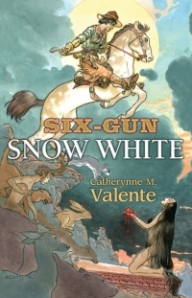
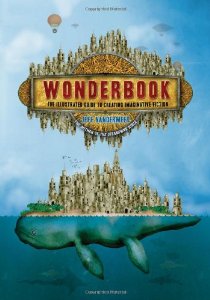


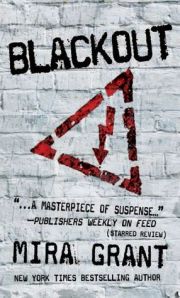
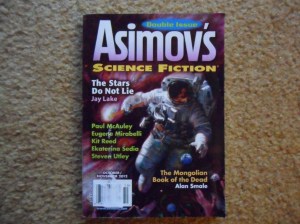


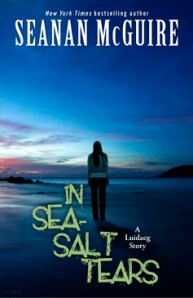
Recent Comments